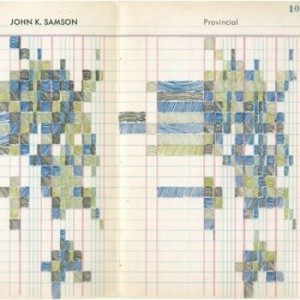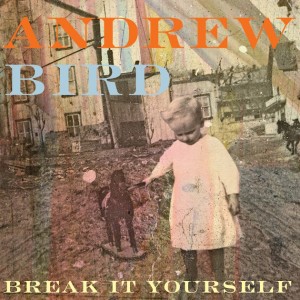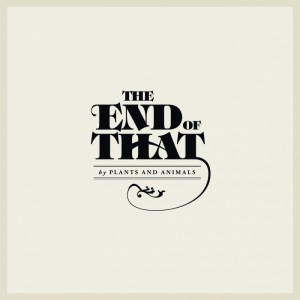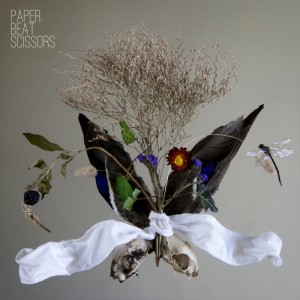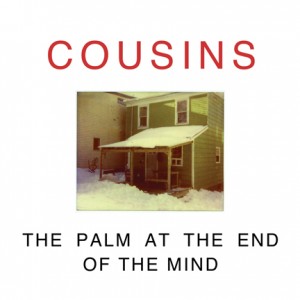John K. Samson
Provincial
(Anti)
4/5
Provincial is the first full-length solo release from John K. Samson, singer/guitarist of Manitoban folk-punkers the Weakerthans.
This album isn’t a huge stretch from his work with the Weakerthans: both show that Samson’s real strength is his lyrics. His ability to give the listener insight into the characters and areas he sings about is what makes him one of the best lyricists in Canadian music.
The longing in “The Last And” is my favourite example of Samson’s strength with words. The song is written from the point of view of a pear-shaped teacher lamenting the end of her affair with the school’s principal. With a soft shuffle on the drums and a gentle lull of the bass, Samson really sets the mood.
And although that mood is generally sombre (he is, after all, from Winnipeg), there’s enough toe-tapping on “Cruise Night,” “When I Write My Master’s Thesis,” and “Longitudinal Centre” to keep things rocking.
-Dan Darling
Andrew Bird
Break It Yourself
(Mom + Pop Music)
4.5/5
On Break It Yourself, Andrew Bird is confident and relaxed. All his trademark sounds are here: pizzicato and bowed violin, guitar, looping, brushed snares, horn speakers, and, of course, whistling. But there is something new, too.
Bird isn’t one to shy away from experimentation, and that has never been more apparent than on Break It Yourself, which adds a whole new array of sounds to his usual mix. There’s something warm and woody yet otherworldly about this album, perhaps evoking a subterranean cathedral.
“Danse Carribe” is highly danceable and features violins that sound like steel drums. “Orpheo Looks Back” is a fast-paced, Bird-style fiddle tune. And album closer “Hole in the Ocean Floor” develops themes from 2009’s instrumental Useless Creatures.
Listen to this album while lying on the grass with your eyes closed on a sunny day. Or underwater. Just remember to breathe.
-Rose Jang
Plants and Animals
The End of That
(Secret City Records)
4/5
I hope you like guitars. Acoustic. Electric. Distorted. Ethereal. Harmonious. Lots of guitars. Yes? Okay. You’re going to like Plants and Animals’ third record, the End of That.
Something is inherently classic about this indie-rock album. The title track sounds like classic Canadian rock. Epic, six-minute-long tune “Crisis!” has a Rolling Stones vibe. It is followed by six-and-a-half-minute-long “2010,” which is the closest the End of That comes to the darker sound of the band’s sophomore album, La La Land.
The End of That is more mature and upbeat than Plants and Animals’ previous records. Warren Spicer’s distinctive vocals are melodious and pleasing, and the whole album has a comforting, earthy feel.
The End of That might not be a stretch, but neither is it a misstep, by any count. Add this one to your road-trip playlist.
-Rose Jang
Paper Beat Scissors
Paper Beat Scissors
(Forward Music Group)
4.5/5
The new self-titled album from Paper Beat Scissors will have you settling into daydreams or reflecting on past memories, good and bad. It might even give you feelings of intense pain or utter happiness: it’s that good.
The Arcade Fire’s Jeremy Gara recorded and mixed the record in his Montreal kitchen. Tim Crabtree is the talent behind the powerful lyrics and emotional vocals that fill the album; Crabtree also co-produced this excellent disc.
Along with his well-crafted lyrics and acoustics throughout each song, Crabtree’s voice packs with it a kind of raw emotion that you just can’t help but lose yourself in.
Through his own bittersweet reflection, Crabtree takes you on a journey through your own memories. Paper Beat Scissors is powerful and uplifting, and the band’s live shows are, apparently, a must-see. Judging by the strength of these songs, it’s probably the truth.
-Charlotte Wood
Cousins
The Palm at the End of the Mind
(Saved by Vinyl)
2.5/5
The Palm at the End of the Mind is the second full-length release by Halifax garage rockers Cousins. Unfortunately, The Palm at the End of the Mind really doesn’t feel that accomplished or complete. It’s inoffensive, for sure, but really monotonous, both musically and vocally.
The biggest problem on this album is that not a lot of variation can be found between the way the songs sound; I blame it on the somewhat fake-sounding distortion that coats this album like wax dripped over skin.
On the plus side, the spacing of individual musical elements is pretty creative and really holds the album together (especially the drums).
Really, listening to this album is a lot like swimming in saltwater: it’s not bad at first, but then you have to dry off, and you just end up feeling like a beached eel for the rest of the day.
-Adam Price

